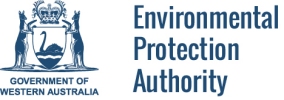The EPA has established a Scientific Advisory Council to proactively engage with key research partners and experts in institutions and government to enhance and promote environmental protection knowledge and understanding.
Under section 25 of the Environmental Protection Act 1986, the EPA may establish groups, committees, councils and panels to assist the EPA in the performance of its functions.
The council fulfils a commitment outlined in the EPA’s Strategic Plan 2023–26.
The core membership of the SAC is made up of subject matter experts that correspond to the themes of sea, land, water, air, people, environmental impact assessment, science and environmental planning.
Membership* is voluntary and by invitation from the EPA for a period of three years, to those considered eminent in their field. Representatives on the council span government, industry, private sector and universities.
Council members will usually be asked to attend an EPA meeting once a year on significant or emerging environmental assessment and protection issues in their field. They may be requested to provide high-level counsel on an ad hoc basis.
Members
Professor Sharath Sriram; Dr Matt Hipsey; Dr Jo Buckee; Dr Bruce Hegge; Professor Stephen van Leeuwen; Dr Paul Hardisty; Phil Whittle; Dr Ray Masini; Dr Hans Kemps; Dr Kellie Pendoley; Professor Kathryn McMahon; Dr Capri Beck; Professor Owen Nevin; Professor Eddie Van Etten; Greg Woodman; Claire Stevenson; Professor Matthias Leopold; Dr Stuart Halse; Garth Humphreys; Professor Carolyn Oldham; Dr Renee Young; Dr Bill Richmond; Professor Jo McDonald; Associate Professor Frances Hoyle; Dr Mike Bamford; Roy Teale; Associate Professor Nik Callow; Dr Sandie McHugh; Philip Commander; Dr Don McFarlane; Adam Harman; Duncan Storey; Dr Peter Di Marco; Dr Peter Taylor; Mirella Goetzmann; Dr Fiona Wild; Rachel Lewis;Phil Scott; Dr Siobhan Hickling; Hazel Upton; Dr Joanna Wriedt; Jon Button; Dr Jenny Pope; Professor Angus Morrison-Saunders; Dr Paul Vogel; Dr Garry Middle; Jason Hick; Jim Hondros.
* The EPA acknowledges that conflicts of interest may exist for some members. Conflicts will be managed consistent with the EPA’s Code of Conduct.
Update, 26 November 2024: Dr Luke Twomey and David Caddy have been appointed members of the Environmental Protection Authority (EPA) and have withdrawn from the Scientific Advisory Council (SAC).
(The Scientific Advisory Council is separate to the targeted subject matter expert panels being established by the Department of Water and Environmental Regulation (DWER) to support assessments, reduce environmental impact assessment (EIA) timelines and manage workloads.)
| Attachment | Size |
|---|---|
| 144.62 KB |
